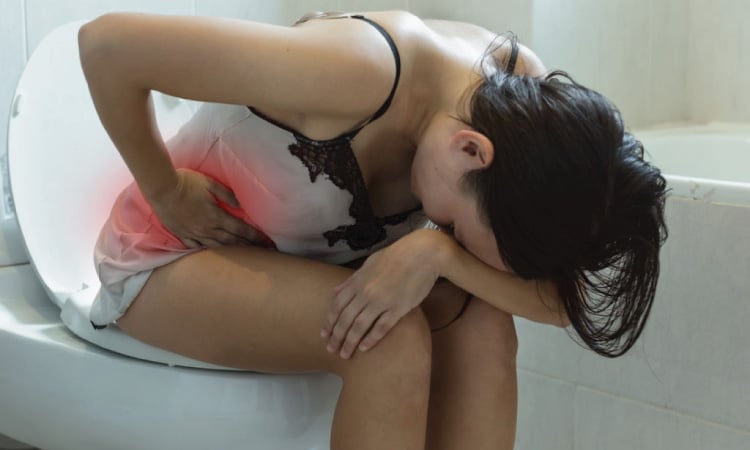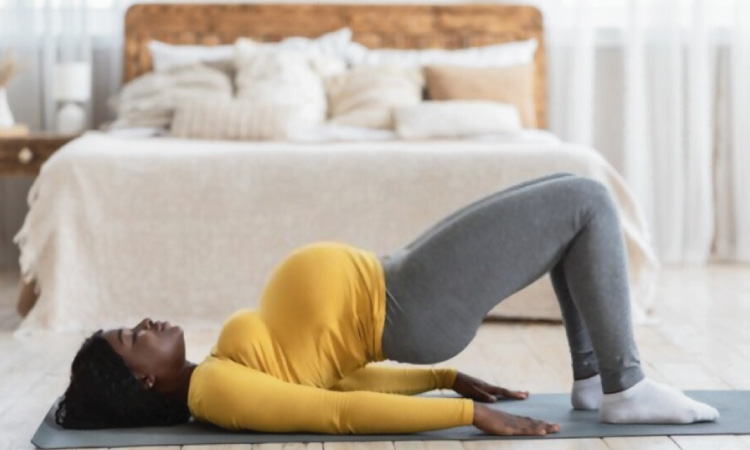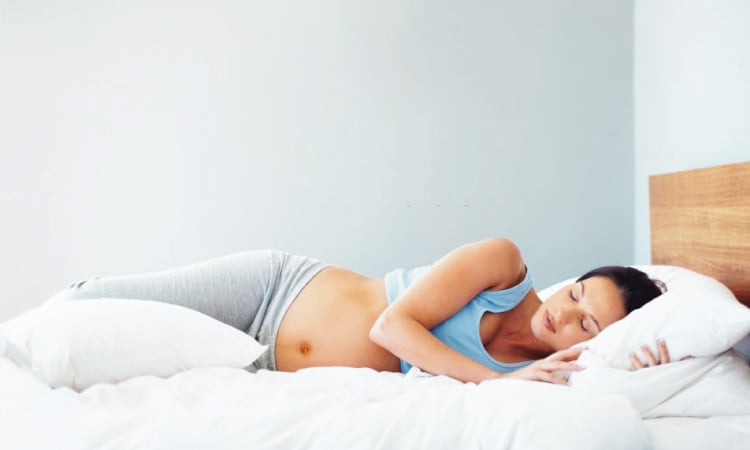Pregnancy comes with a package of surprises. Which can either be exciting or annoying. Frequent urination during pregnancy falls into the latter category. Frequent trips to the bathroom will become increasingly inconvenient as the pregnancy progresses.
In this article, we will discuss one of the most common pregnancy symptoms that every pregnant woman experiences: frequent urination. We also offer some suggestions for how to deal with it.
When Does Frequent Urination Starts In Pregnancy?
Frequent urination is one of the early pregnancy symptoms. It tends to appear around the six-week mark of pregnancy. However, its frequency can alarmingly increase as the pregnancy progresses. During the first and third trimesters of pregnancy frequent urination is highest.

What Is Considered Frequent Urination In Pregnancy?
A typical urination pattern ranges from four to ten times per day with an average of about six. This number, however, may vary depending on what the person drinks and how frequently he or she drinks. Urinating 10 times per day is also considered normal, as long as the individual is healthy and comfortable with the frequency of urination.
Related Reading: Should You Drink Cold Water After Delivery?
Frequent urination occurs when you need to urinate more frequently than usual. This number, however, will be determined by the individual’s standards.
For example, if a woman normally visits the restroom eight times per day, becoming pregnant may cause her visits to increase to ten times per day. Everyone’s urination pattern differs. Thus, the number of urinations that indicate frequent urination during pregnancy also differs.
While some pregnant women observe the changes right from the 6th week of pregnancy, others do not. They continue using the restroom the same as before, or even a little more often. While some women observe the changes, others do not. They continue using the restroom the same as before, or even a little more often.
Calculate Due Date With LMP
During pregnancy, it is normal to need to use the restroom more frequently. The bladder, bowel, and uterus are all housed within your abdomen. As a result, changes in one organ are more likely to affect the others.
What Causes The Need To Pee Frequently?

The following are some of the reasons why your bathroom visits increase during pregnancy.
Causes of frequent urination during the first trimester
Dr Ankita Patel Tayal, our panel gynaecologist, explains two main reasons for frequent urination during pregnancy’s first trimester :
Hormones
In the first trimester of pregnancy, an increase in the frequency of urination is usually caused by hormonal changes. Soon after you become pregnant, your hCG level rises. This, in turn, improves blood circulation and fluid levels significantly.
During this stage, the expecting mother’s kidneys also become more efficient. During pregnancy, the body efficiently eliminates waste from the body. More fluids and increased blood circulation, when combined with an efficient kidney, produce more urine.
Related Reading: 10 Drinks To Avoid During Pregnancy
Growing uterus
Although not as significant as the following months, the first trimester also sees uterine growth. As previously stated, a minor change in one of the closely located abdominal organs may have an effect on the other. As a result, the expanding uterus may exert pressure on the bladder. This can give the impression that you need to empty it more frequently.
A small note for first-time mothers: If you fail to experience an increase in urination in the first few weeks, don’t get worried. It doesn’t point toward any issue. You will certainly experience it in the upcoming months of pregnancy.
Causes of frequent urination during the second trimester
The uterus certainly expands during this stage as well. However, during the second trimester, the uterus rises higher in the abdomen and away from the bladder. This relieves the bladder’s pressure.
As a result, you may experience some relief from frequent urination during pregnancy second trimester (with respect to first and third). The effect of the surge in pregnancy hormones, on the other hand, will remain. As a result, you may feel the need to pee more frequently than you did on pre-pregnancy days.
Related Reading: 7 Benefits Of Drinking Milk During Pregnancy
Causes of frequent urination during the third trimester
Frequent urination during pregnancy third trimester is caused primarily by the baby dropping lower in the woman’s pelvis in preparation for delivery. This, in turn, puts strain on the bladder, necessitating frequent trips to the restroom.
During the last three months of pregnancy, blood flow also increases significantly. This also contributes to an increase in urination frequency. In comparison to the first three trimesters, bathroom visits increase during the third trimester (both during the day and at night).
Other causes of frequent urination during pregnancy
Other factors that bring about frequent urination during pregnancy are:
- Infection in the urinary tract
- Injuries in the pelvic area
- Increased fluid intake
- Being overweight, which can put pressure on your bladder
- Excessive intake of caffeine
- Medications that have a diuretic effect
Related Reading: Black Stool During Pregnancy- Probable Reasons, Remedies And Prevention
When Is Frequent Urination During Pregnancy A Sign Of Concern?

During pregnancy, it is common to urinate more frequently than usual. It is usually not a cause for concern. However, if a pregnant woman experiences pain while urinating, she should consult a doctor. This is due to the fact that frequent urination may indicate urinary tract infection (UTI).
Dr Ankita who is a practising obstetrician since 10 years, says that UTI is quite common during pregnancy. And, if left untreated, it can lead to complications such as a kidney infection, preterm labor, and so on.
Seek medical attention if you experience any of the following symptoms:
- You feel unwell
- Feeling pain or burning sensation while peeing
- Lower back pain with or without a constant lower abdominal stomach ache
- Feeling the need to urinate even when you’re only able to produce a few drops at a time
- Leaking urine when you feel the urge to pass urine
- Your urine smells particularly unpleasant
- Urine appears cloudy and dark yellow
- Blood-tinged urine
- Lower abdominal pain or pelvic discomfort
One of the symptoms of gestational diabetes is an increase in urination. If you have increased urination, thirst, and are extremely tired, this could be a sign of gestational diabetes.
Related Reading: 7 Home Remedies For Abdominal Pain During Pregnancy
Why The Need For Bathroom Visits Increases During Night?
Frequent urination during pregnancy at night, especially as the pregnancy progresses, is caused primarily by two factors:
- Fluid retention: When you lie down, some of the fluid that was retained in your legs and feet during the day returns to your bloodstream and eventually to your bladder
- Growing uterus: At this stage, the baby is large enough to put pressure on your bladder. The pressure exerted will be greater while seeping into a specific position. This increases the desire to pee more frequently
6 Tips To Tackle Frequent Urination During Pregnancy

Listed below are some solutions that will surely assist to tackle frequent urination during pregnancy:
1. Kegel exercises
According to studies, Kegel exercises to tone and strengthen the pelvic muscles. As urethral muscles become stronger, they gain control over the organ. This will, in turn, help you have better control over your urination.
The exercise can be done about three times a day. To do a Kegel, tighten and then relax those muscles as if you’re trying to stop your urine stream. Keep the muscles contracted for about 10 seconds. Do it 10 to 20 times in a row. You have to repeat it at least three times a day. Kegels not only help during pregnancy but also have benefits after delivery.
2. Lean forward while urinating
Leaning forward while urinating aids in bladder emptying. This, in turn, helps to reduce the number of trips to the restroom.
3. Stay away from caffeine
Coffee, tea, soft drinks, fizzy drinks, and other caffeinated beverages should be avoided. Caffeine acts as a diuretic. That is, it increases urine production. As a result, you’re more likely to need to use the restroom after drinking caffeinated beverages.
So, limiting or eliminating coffee, tea, and fizzy drinks like cola from your menu will help to reduce the frequency of urination. You can have caffeine-free beverages are an alternative.
Related Reading: What Teas Are Safe To Drink While Pregnant?
4. Try cutting back on fluids after the evening
You probably don’t want to drink more if you’re already worried about needing to go to the bathroom. That is not the right way to deal with this. Your body needs to be hydrated. Never be tempted to reduce your fluid intake in order to stop the constant urination.
You should drink around two liters or eight glasses of water per day to meet your daily fluid intake goal. A steady supply of fluids is very important for the healthy progression of pregnancy. There are a few simple ways to beat dehydration during pregnancy as many pregnancy complications are related to dehydration.
By drinking more fluids in the morning and afternoon, and minimizing the evening fluid intakes may help to decrease night-time urination. However, you should meet your daily fluid intake goals. Just drink more fluids in the morning and afternoon. And drink less as bedtime nears.
5. Avoid constipation and excessive weight gain
It is important to take precautions during pregnancy to avert excessive weight gain and constipation. Putting on too much weight puts extra strain on your bladder.
Similarly, constipation during pregnancy causes the stool to become stuck in the bowels, adding pressure to the bladder. As a result, eat well, drink plenty of fluids, get some exercise, and consume plenty of fiber.
How Long Does Frequent Urination During Pregnancy Lasts?
During the second trimester, the pregnancy-related urinary frequency may lessen, but it usually returns toward the end of the pregnancy.
Even after delivery, the body continues to eliminate excess fluid that is gained during pregnancy. The need to urinate frequently will not go away for at least a few days after delivery. Once the extra fluid has been eliminated from her system the new mother will feel some relief from the increased frequency of urination.
Related Reading: 9 Ways To Avoid Vomiting After Eating During Pregnancy
Conclusion

Waking up in the middle of the night to use the restroom can disrupt your sleep and cause fatigue during the day. If possible, take a nap, or at the very least try to sit and take some rest during the day.
Keep a night lamp in the bathroom and light your path from bed to toilet with soft night lights as well. After all, safety matters. Pregnant women who experience urination pain or who continue to have bladder problems after giving birth should see their doctor.
